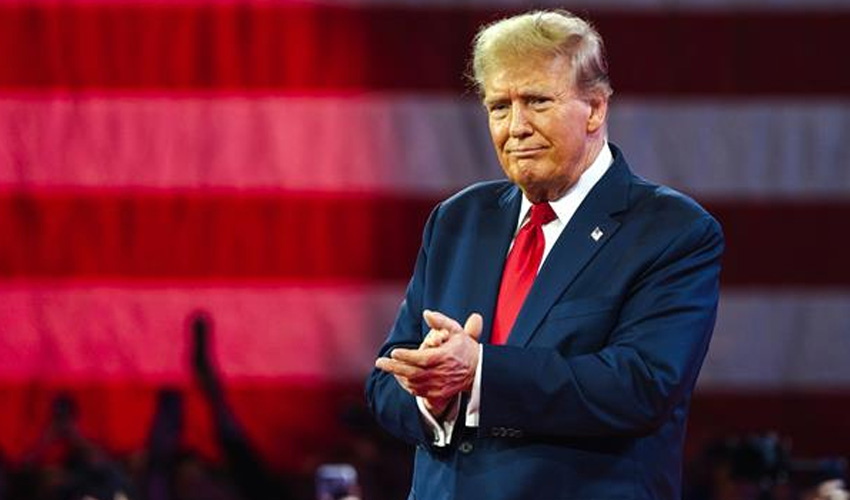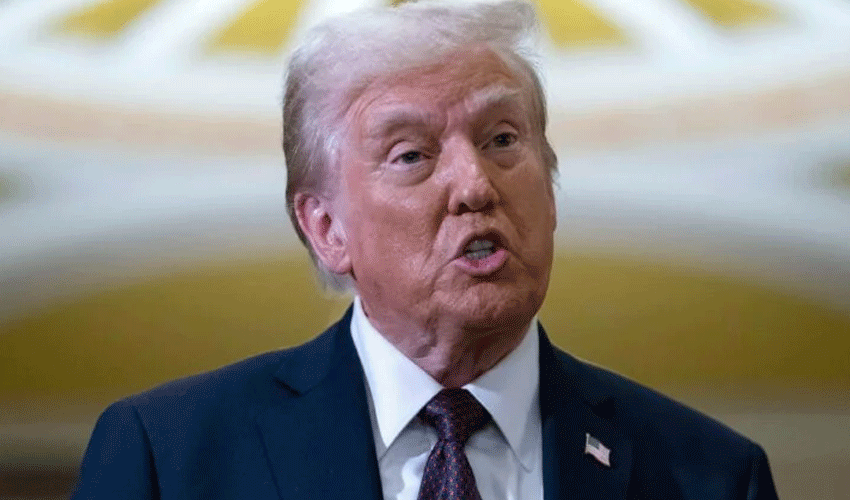Recent US presidential election 2024 results shocked most. Donald Trump has been confirmed for a second term in the White House. Having won on the back of a campaign marked by his signature combative rhetoric, Trump's return raises a plethora of questions, not least about his approach to foreign policy.
After four years of the policy of President Joe Biden, focused on reengagement with international allies and multilateralism, Trump's foreign policy would set the United States on a more isolationist journey.
Other than these world crises, ongoing are, tensions with China, Ukrainian crisis, instability in Middle East, etc, experts now warn that a President Trump will inject a volatile unpredictability into US foreign affairs going into his second term, as the next chapter may hold far-reaching consequences from these key areas:
Return of 'America first' diplomacy
Trump's first term was peculiarly defined by his "America First" doctrine in foreign policy - that is, essentially defined as putting US interests above all else, often at the cost of long-standing alliances and cooperation with other countries. Whether it was pulling the United States out of the Paris Climate Agreement or pulling it out of the Iran nuclear deal, apparently a plus for Trump was doing something about it unilaterally rather than trying to achieve it multilaterally. With renewed expectations, many will believe that the 45th president, with his return to the Oval Office, will revive this policy of isolationism in foreign conflicts because he promised to decline America's participation in international conflicts, indicating that attention will slowly be diverted to domestics such as immigration issues and inflation.
As if to fulfill this promise, in his campaign speeches, Trump would commit to ending the war abroad, mostly in the Middle East, where he promised to bring the American troops home. Again, observers note that his agenda may well fuel the fire already burning globally. As such, again because of his unpredictability, allies and adversaries alike do not know what he wants, which often results in unseen consequences.
Israel: Trump's 'Best Friend' in the Middle East
One of the most significant foreign policy successes of Donald Trump during his first term of his presidency was his support for Israel. Indeed, as noted by Israeli Prime Minister Benjamin Netanyahu, Trump was "the best friend Israel has ever had in the White House." From the embassy of the United States moving from Tel Aviv to Jerusalem to recognition of Israeli sovereignty over the Golan Heights, a pro-Israel stance made by Trump improved his rapport with Israeli leaders and this gained the admiration of many in the country.
In addition, his government facilitated the Abraham Accords, a historic agreement that normalizes relations between Israel and a number of Arab nations. Some have faulted the Trump administration's approach to Israel's foreign policy as one-dimensional, relying on arms deals and financial aid to try to maintain peace. Critics point to the fact that it is these policies in the long term that may adversely affect the situation, especially since such policies are mostly perceived to fuel the tensions in the Middle East, more so with the Palestinian groups, and push the region closer to open conflict.
Contrary to his promise to end the US's "endless wars," Trump's policies in the Middle East were responsible for some of the region's most explosive moments. The ramification of his unilateral withdrawal from the 2015 Iran nuclear deal and crippling sanctions against Tehran set the region aflame and into a precarious state of security. Authorizing the killing of General Qassem Soleimani, one of Iran's most important commanders, certainly does not help to calm the problem but sets the stage for more coming warfare.
The strategy that Trump has pursued on Iran appears extremely likely to continue into the second term. His stress on "maximum pressure" and the role of economic sanctions, with no sign of diplomatic dialogue, has had the effect of making many fear that conflict will only continue to deteriorate, especially as Iran's nuclear ambitions and its proxy activities across the region are profound points of contention.
Trump's unpredictability might become an accelerant of instability. Specialists in foreign policy argue that because of his rhetoric bellicosity and propensity for unilateral action, a second term for Trump can provoke an even more unstable Middle East and lead to increased direct conflicts over Syria, Lebanon, and Iraq.
Ukraine and Russia: Unlikely broker?
Perhaps the boldest claim made by Trump during the campaign is that he can settle the ongoing war between Ukraine and Russia in 24 hours. "If I'm president, I will have that war settled in one day," Trump insisted, to the chagrin of his statement across the Foreign Policy desk. Most of his promises are cocky, but assuredly, his company with Russian President Vladimir Putin has long raised a red flag.
Trump has repeatedly assailed the Biden administration's decision to continue supplying aid to Ukraine, even reportedly suggesting he may veto future support if re-elected. Such a policy shift would likely empower a shift in US policy toward Ukraine and further Kyiv's nightmare of Russian aggression, providing Moscow much-needed space to consolidate its territorial gains in the region.
What will be very, very scary for some people is that the potential consequences of Trump's rhetoric could actually be real-the worst-case scenario could play out when Trump indeed meets Putin and strikes a deal to sideline Ukrainian interests. Then the balance of power in Eastern Europe may get shifted dramatically. A prospect of Trump trying to find a compromise with Russia, which might entrench territorial concessions by Ukraine, can be understood as a worse form of betrayal, against US commitments toward NATO and democratic principles in the region.
China: Bargling or brawling?
The US-China competition arguably is the most defining geo-political issue of the 21st century. The rivalry pits two nations with different systems of governance, economies, and cultures against each other. In effect, it pits two opposing superpowers. Under Trump, the US began a full-blown trade war with China through placing tariffs on billions of dollars of Chinese goods in an effort to rollback Beijing's rising economic.
END. While Trump has openly praised Xi Jinping as a "strong leader," claimed to have a "great relationship" with him, his administration also aggressively pushed back against China on such issues as an imbalance in trade, theft of intellectual property, and abuse of human rights.
The hardline stance of Trump toward China will continue in the second term as well. Escalation of trade tariffs, including an extra 60 percent on Chinese goods, would have put enormous pressure on US-China relations. Trump's stand against China's activities in the South China Sea, Taiwan, and its technological advancements would also be hard in the second term.
For all observers, the policy of Trump toward China is a balancing act between competition and cooperation, with economic interests sometimes preceding ideological differences. This remains to be seen, though, with China rising as a global power, when Trump will engage in this relationship during his second term.
Global cooperation: A distant dream?
His anti-multilateralism defined the first term of Trump. His withdrawal from the Paris Climate Agreement and the Iran nuclear deal indicates his preference for bilateral engagements over international cooperation. Trump's antagonistic stance on NATO and other international institutions like the United Nations cast a shadow on allies, particularly in Europe, on the specter of chaos in the global order.
European leaders have expressed deep concern over Trump's return, many fearing that his presidency will break the security frameworks like NATO and economic partnerships such as the G7. Should Trump continue on a more aggressive "America First" agenda, Europe could find itself isolated in a world where US leadership is erratic and unpredictable.
In sum, Trump's second term promises to inject uncertainty into global affairs. While his administration will probably advance US economic and military interests, the willingness to just walk away from multilateral agreements and act unilaterally may help ease tensions with both friends and foes. From the Ukraine crisis to China, in a new competition, Trump 2.0 might remake U.S. foreign policy in ways that will echo around the world for decades to come. Whether these changes will stabilize the geographies of global politics or further destabilize them remains to be seen. With the whole world watching, the emerging narrative of Trump's return to the White House seems to point toward a future where US foreign policy might become much more unpredictable and marked with higher degrees of isolationism and a rebalancing of global alliances.



























